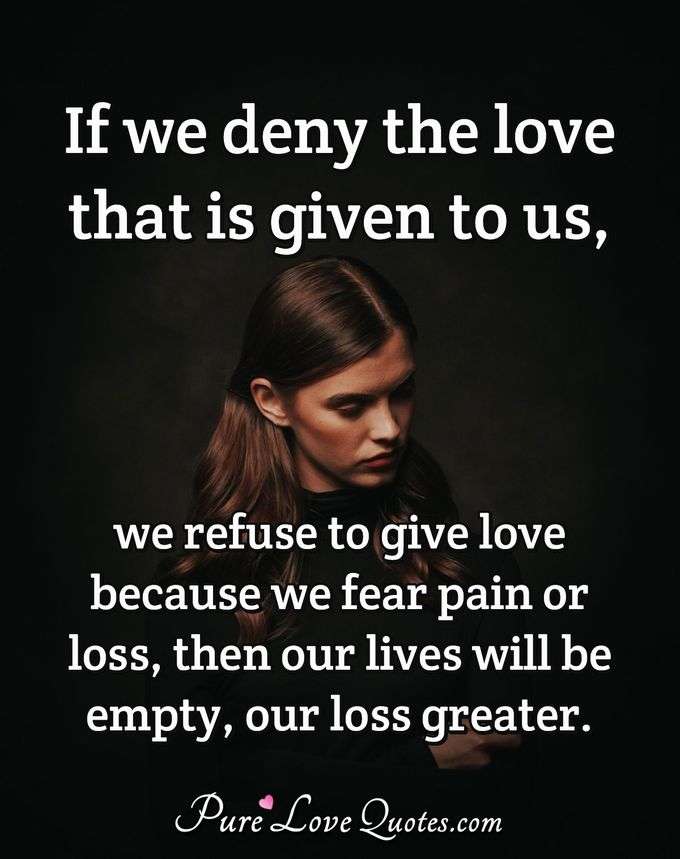In the pursuit of love, one might pose a playful question: could the secret to finding love be found in letting go? This paradoxical notion is a challenge many face, especially in the contemporary landscape of interpersonal relationships. In the teachings of the Bahá’í Faith, this conundrum offers an illuminating perspective on the dynamics of love and the importance of relinquishing fears and attachments that inhibit genuine connections. This article explores the profound Bahá’í principles surrounding love and the transformative power of letting go.
At its core, the Bahá’í Faith emphasizes the essential unity of all human beings and the innate capacity for love within each individual. The essence of love, according to Bahá’í teachings, is to recognize the divine attributes residing within one another. However, love is often obscured by layers of fear, insecurity, and societal expectations. Hence, the journey towards meaningful relationships begins with an introspective process of letting go—of doubt, of fear, and perhaps most importantly, of the need to control.
The first step in this evolution is understanding the concept of attachment. Attachment serves as both a shield and a prison. It can offer a false sense of security, leading individuals to believe that clinging to relationships or outcomes will yield happiness. Yet, the Bahá’í teachings caution against such attachments, advocating instead for a reliance on divine guidance. When individuals release their grip on expectations, they open themselves to an abundance of love that transcends limitations. This principle of non-attachment encourages personal growth and the cultivation of inner peace, which becomes the foundation for authentic love.
Moreover, the act of letting go is inextricably linked to the cultivation of virtues. In the Bahá’í view, virtues such as compassion, patience, and humility are indispensable not just in the quest for love but also in nurturing enduring bonds. Letting go of fear fosters a fertile ground for these qualities to flourish. This is not merely an abstract exercise; rather, it requires conscious and deliberate effort to act with kindness and generosity towards oneself and others. When fear recedes, love can thrive, enriching both the giver and the receiver.
Yet, the path is not devoid of challenges. It might be tempting to revert to familiar patterns of attachment, particularly when faced with vulnerability. The critical question then arises: how do we break the cycle of fear and embrace the unknown in love? One profound strategy lies in the practice of self-reflection and mindfulness. By engaging in regular contemplation and prayer, individuals can cultivate a deeper understanding of their emotions, thereby gaining the clarity needed to confront and release those fears. This transformative practice aligns with the Bahá’í principle of seeking truth and encourages individuals to examine the root causes of their anxieties.
Engaging with the community, another pillar of the Bahá’í Faith, provides further support in the journey of letting go. The sense of belonging nurtures love while also offering a space for individuals to explore the joys and challenges of relationships. Community gatherings, service activities, and discussions around spiritual topics create an environment that promotes open-hearted connections. When individuals share their vulnerabilities within a supportive framework, the fear of judgment diminishes, and the capacity for love expands.
Furthermore, the Bahá’í teachings emphasize the duality of love. This dual nature encompasses both the love that one gives and the love that one receives. Inherent in this exchange is the understanding that genuine love encompasses a selfless aspect. By relinquishing possessiveness and prioritizing the well-being of others, individuals find that love flows more freely. This reciprocity fosters deep connections that bring profound joy and satisfaction, illustrating that often, the act of letting go opens the doors to deeper relationships.
It is imperative to recognize the role that forgiveness plays within this spiritual framework. Often, past grievances and disappointments can entrap individuals in a cycle of resentment. The Bahá’í teachings advocate for forgiveness as a transformative practice that liberates the heart from the shadows of the past. By consciously choosing to forgive, individuals not only free themselves but also create a space where love can blossom anew. Forgiveness, therefore, becomes a vital act of letting go, demonstrating that love is often a choice rather than a mere feeling.
As we traverse the multifaceted terrain of love, one begins to see that the quest for connection is inherently tied to our willingness to let go. The challenge of releasing fear and embracing vulnerability is not simply an individual struggle; it is a collective journey shared among all of humanity. By adhering to the teachings of the Bahá’í Faith—focusing on unity, virtue, community, and forgiveness—individuals can unlock their capacity to love unconditionally.
In conclusion, the art of forgetting and letting go serves as a powerful tool in the journey to finding and experiencing love. The Bahá’í teachings illuminate the path ahead, offering profound insights into the myriad ways one can transcend fear and embrace love in its truest form. Ultimately, the challenge lies not solely in the pursuit of love, but in the deeper understanding that sometimes, to truly receive love, one must first learn the delicate art of letting go.
